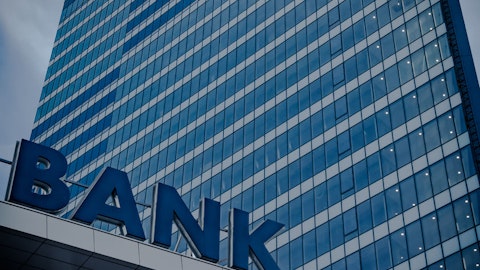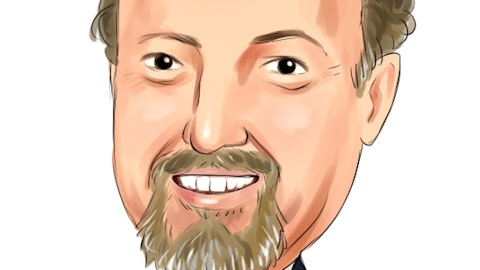Paul Burdiss: Well, I’ll start with that and invite Harris and Scott to jump in. Recall we were a CCAR bank a few years ago, and sort of all of the muscular activity that we put in place to be compliant with CCAR and being a SIFI and all those things, that’s all still in place. I mean, there were really — we put in some really great risk management things that continue to be in place. So, I don’t foresee personally anywhere close to a $100 million of incremental cost. In fact, I think that we sort of have the things in place today to be able to comply. The biggest change for us, I think there’ll be some changes in risk weighted assets around the edges that we need to pay attention to. But the biggest change for us will be the incorporation of AOCI into the numerator of capital.
And as I think we have previously stated, the relatively short duration of our investment portfolio, which is the source of the AOCI that we have on the balance sheet, that impact we expect to be largely gone by the time that those rules become effective for us.
Harris Simmons: I think that’s actually very true with respect to capital. I think the one place it’s going to cost is on the debt requirement. And we have got about $0.5 billion of debt. If you put the proposed debt requirement into place today, that would go up to about $4 billion roughly. So that incremental $3.5 billion, the credit spread on that relative to the cost of funding, with any other wholesale source, home loan, larger deposits, et cetera, is going to create some drag, I think. And you kind of do the math, whatever you think that credit spread is on times our risk-weighted asset number. So that I think to me is going to be the primary sort of new thing that we will hit.
Operator: Our next question comes from the line of Brandon King with Truist Securities. Please proceed with your question.
Brandon King: Good evening. So with the expectation of stable loans over the next 12 months and the runoff of the securities book, what’s the outlook for deposit growth?
Harris Simmons: We historically have stayed away from deposit growth outlooks. I think, what you have seen though over the last couple of quarters is substantial deposit growth. As our continued conversations with our customers have paid off in the form of an increased deposits on the balance sheet, deposit growth has been very good over the last two quarters. And then the third quarter in particular, I wouldn’t expect that level of deposit growth to continue. But I do expect Zions to be able to maintain a very solid loan-to-deposit ratio and continue to see deposit growth, probably at least into the next quarter.
Brandon King: Okay. And within that, is there a meaningful delta between the rate on new customer deposits versus existing customers?
Harris Simmons: Yes. The deposit growth that we have seen in the third quarter has definitely been on the higher end of our deposit sort of offering rates. And so, you see that in the continued increase in the interest-bearing deposit rate that’s largely coming from the new money coming on the balance sheet at higher rates.
Brandon King: Okay. So it’s more of that, and as far as existing customers, bringing back funds and mix shifting into higher interest-bearing accounts?
Scott McLean: Yes. This is Scott. I would say that what we have seen is that as we became much more active in our pricing of interest bearing deposits that our clients have become much more active in bringing their deposit to bank. So as we have said, we had approximately $11 billion in deposits off balance sheet, that client deposits that were in off balance sheet money market funds because we just — the industry was awashed with liquidity, and as we started continuing to talk to those clients about bringing those deposits back on balance sheet, it was very easy conversation and we got more aggressive about what we were paying. They’re not only bringing back what they had in our off-balance sheet money market sweeps, but they’re bringing other deposits they’ve had in other institutions in meaningful amounts.





